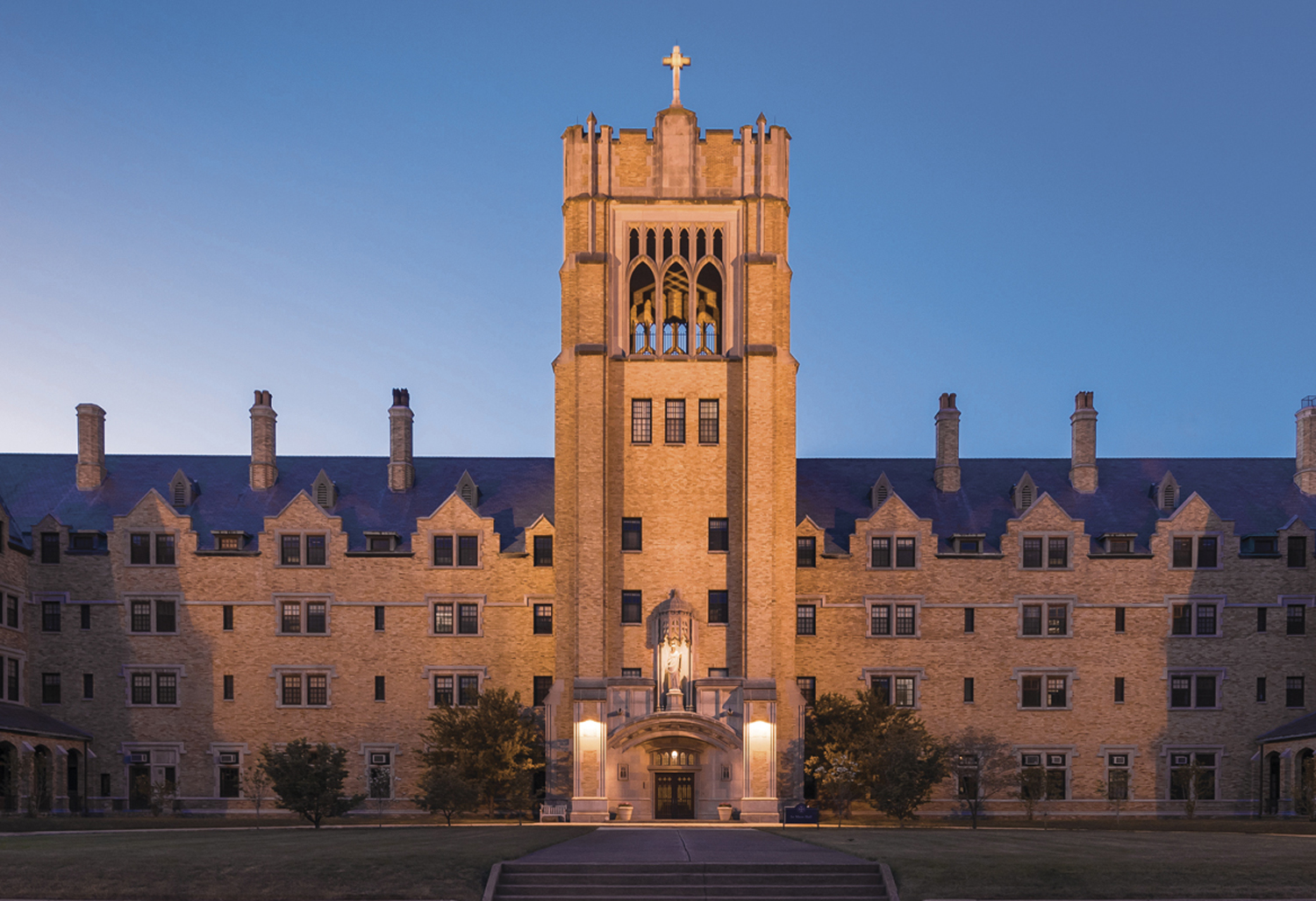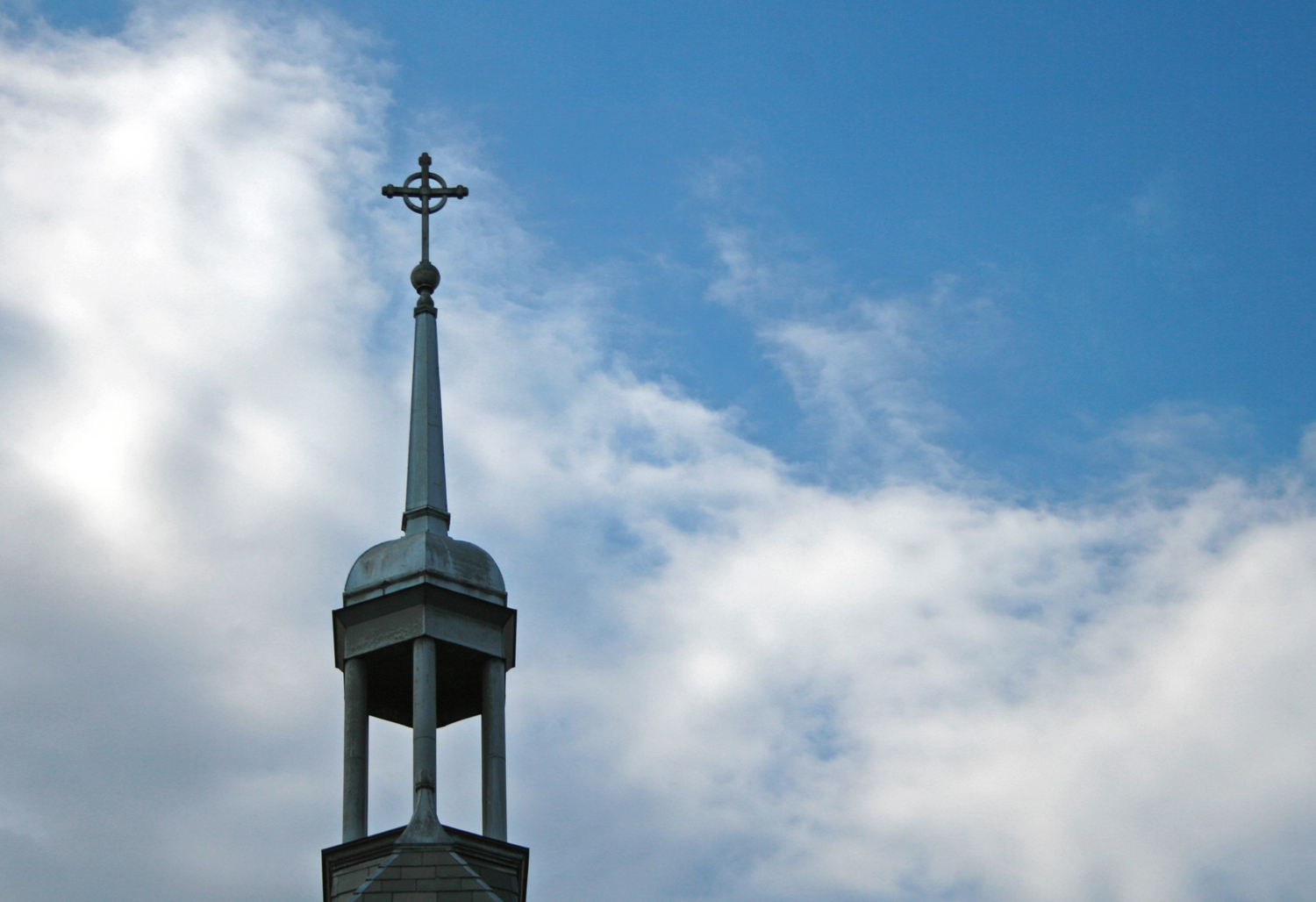 About the Process
About the Process
After interviewing several finalists who were recommended by a search committee, Conboy emerged as the clear choice of the Board. The 16-member search committee was made up of trustees, faculty, staff, a student representative, and several alumnae. They worked in collaboration with a national search firm, WittKieffer, to find a candidate dedicated to the Saint Mary’s mission and would define a clear vision for the College.
The leadership profile for the 14th President of Saint Mary's College describes the ideal candidate and summarizes the priorities for the next president. The profile was developed based on feedback from members of the Saint Mary's community. Please share this document with your networks.
Search Partner
 WittKieffer, a national search firm with substantial experience in presidential and executive searches in higher education, is assisting with the search. Robin Mamlet, managing partner and Education Practice leader, will lead the WittKieffer team with Sheila Murphy and Christine Pendleton. This team brings deep experience with Catholic higher education institutions, women's colleges and liberal arts colleges.
WittKieffer, a national search firm with substantial experience in presidential and executive searches in higher education, is assisting with the search. Robin Mamlet, managing partner and Education Practice leader, will lead the WittKieffer team with Sheila Murphy and Christine Pendleton. This team brings deep experience with Catholic higher education institutions, women's colleges and liberal arts colleges.
Search Committee
The search committee represents a cross section of the Saint Mary's community, including trustees, faculty, administrators, students, alumnae, and parents.
Maureen Smith ’85, Chair and Trustee
Donald Fischer, MD, Vice-Chair and Trustee
Sister Alma Mary Anderson CSC, Trustee
Robyn Caponi, MSSC
Patricia Purcell ’69, Trustee
Jazmin Herrera ’20, Student
Father Paul Kollman CSC, Trustee
Mike Mathile, Trustee
Bill Murphy, Parents Council
Bill Schmuhl, Trustee
Julie Schroeder-Biek ’88, Director of Athletics
Dr. Katie Sears '03, Alumnae Association Board President
Mary Pat Seurkamp, Trustee
Emily Sipos-Butler, Assistant Director of Campus Ministry
Leslie Wang, Department Chair of Sociology and Associate Professor
Megan Zwart, Department Chair of Philosophy and Environmental Studies and Associate Professor

Anticipated Timeline

Spring 2019
Search consultants conduct listening sessions with stakeholders and feedback survey is launched

Summer 2019
Leadership profile describing ideal candidate and summarizing priorities for the next President is distributed

Summer/Fall 2019
Consultants engage in vigorous outreach and recruiting.

Winter 2019
Search committee conducts preliminary interviews and selects finalists

Winter 2019
Finalists are interviewed

Early 2020
Board elects President and makes public announcement

Summer 2020
New President takes office
Updates
Click on any of the dates below to view the communications sent from Presidential Search Committee Chair Maureen Karnatz Smith ’85 and Vice Chair Donald Fischer, MD, and former Vice Chair Patricia Wiedner Purcell ’69.
+January 27, 2020
+December 13, 2019
+November 13, 2019
+October 16, 2019
+September 11, 2019
+August 15, 2019
+July 9, 2019
+June 14, 2019
+May 13, 2019
Share Your Thoughts
Provide Feedback
Important in this process are the voices of our students, parents, faculty and staff members, alumnae and friends of the College. We invite you to offer your thoughts about the qualities that are important in our next president through this brief survey.
Nominate a Candidate
Nominations of candidates for consideration are welcome from all members of the Saint Mary's community. Please submit all nominations via email to SMCPresident@wittkieffer.com. Additionally, we invite you to share your opinions and suggestions about the search through this email address.

About the Process
The Hybrid Approach: Balancing the need for transparency with the need to protect candidates' privacy
Traditionally, presidential search finalist candidates have appeared in public before the community of the hiring institution. This methodology facilitates community engagement and comfort with the search process. Positive effects of this approach include improved community acceptance of the candidate of choice.
Unfortunately, in recent years candidates — especially those in very senior positions dealing with high-stakes issues such as principal gift fundraising or delicate negotiations with accreditors — have become unwilling to undergo such public scrutiny. Candidates' concerns are not unfounded. Those involved in fundraising place at risk the likelihood of a major gift. And although this was seldom, if ever, the case historically, many final candidates now face sanctions at their home institutions for considering new opportunities. Those sanctions range from simple doubts about loyalty to demotion or even outright dismissal. There are multiple stories in higher education trade publications and even in the mainstream press about individuals being fired when it becomes known that they have interviewed for another job. As a result of the probability of such sanctions, many senior leaders now choose not to take the risk of participating in searches unless there is a guarantee of confidentiality throughout the entire process and in perpetuity. Because a sufficient number of institutions will accommodate that need, institutions that will not are at a significant disadvantage in the recruitment of experienced leaders who are successful at their current institutions and are not, therefore, in need of employment elsewhere.
In an effort to optimize the value of community engagement and yet still recruit the strongest possible pool of candidates, many institutions now conduct their final interview using a practice called the Hybrid Approach. In this methodology, the various constituencies of the institution — typically the faculty, staff, students, and alumni, with others as appropriate to the institution's construct and culture — are represented by a select number of their peers in vetting the final candidates and providing input to the board. These representatives, who join that constituency’s search committee in this undertaking, typically execute a confidentiality agreement, pledging that they will keep the identities of the candidates and the content of their feedback completely confidential. The methodology for selecting these additional representatives varies by institution and circumstance, but most typical are either an election or the invited involvement of already-elected representatives, such as a faculty senate, national alumni board or student government officers.
Search committees and boards, then, are faced with a very difficult decision: use the traditional methodology and limit the search to candidates willing to take the risk of "going public" in the final round of interviews, or acknowledge the merits of a necessarily less inclusive process using the Hybrid Approach to leave open the possibility of considering candidates who might not otherwise apply.
We have discussed this dilemma. We will utilize the Hybrid Approach to ensure that we do not limit the pool of candidates for the position. We are determined to serve the interest of the community by ensuring we see the best possible pool of applicants.
FAQs
+How will our representatives be chosen?
+There would still be a lot of people involved. Won't there be leaks?
+What changed to make this necessary?
+Shouldn't someone who wants to be our President be willing
to take the chance and show up nonetheless?
+Does the Hybrid Approach work?
